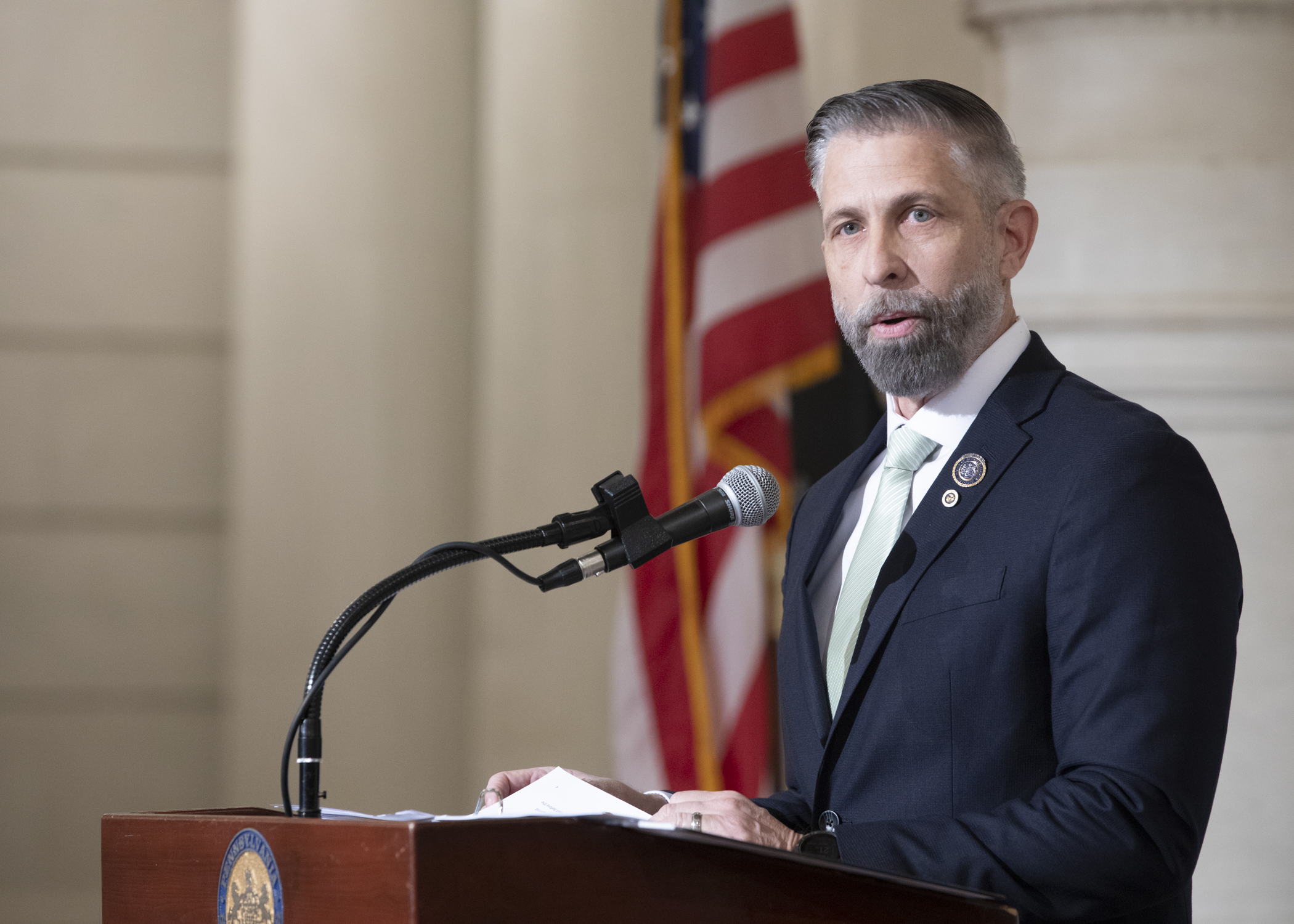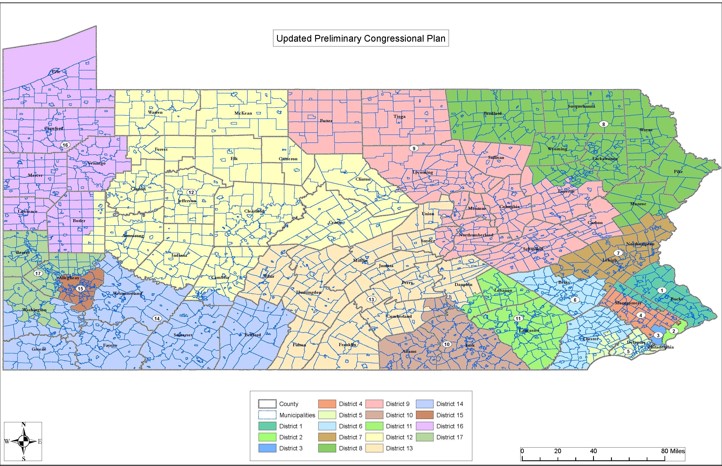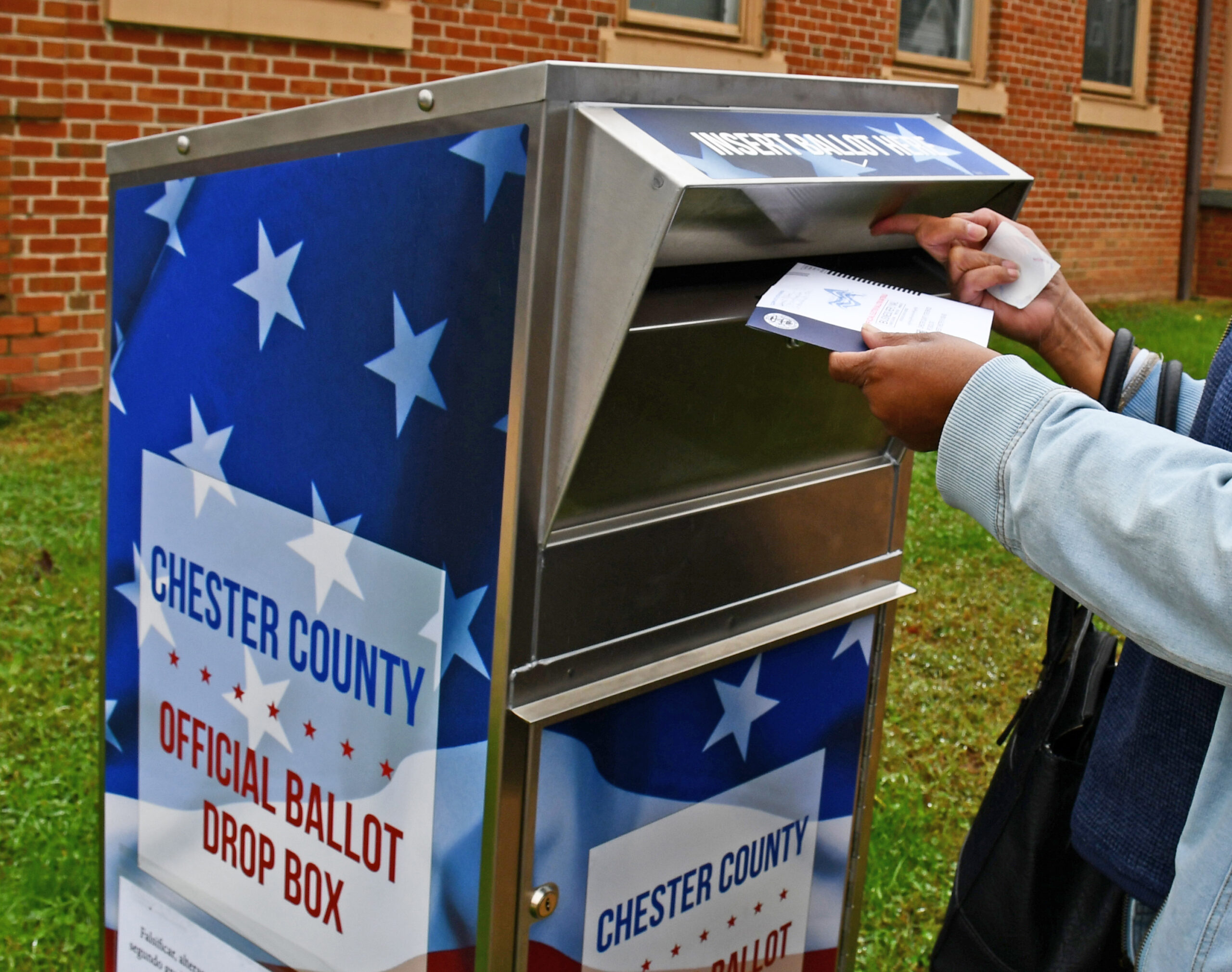Commonwealth Court Strikes Down PA’s Entry Into RGGI

The Pennsylvania Commonwealth Court ruled 4-1 Wednesday that then-Gov. Tom Wolf (D) created an “invalid tax” when he issued an executive order pushing the state into the Regional Greenhouse Gas Initiative (RGGI) in 2022.
RGGI is a multi-state carbon cap-and-trade plan designed to reduce carbon emissions by forcing energy producers to buy credits to generate electricity. Entering the compact was a top priority of Wolf, who vetoed a bill that would have required the state’s legislature to approve entering RGGI.
Rather than going through the legislative process, Wolf ordered the state Department of Environmental Protection (DEP) and the Environmental Quality Board (EQB) to assemble an RGGI package. His efforts were stymied last year by the Commonwealth Court after an injunction.
On Wednesday, the court shot down Wolf’s executive order.
“Stated simply, to pass constitutional muster, the Commonwealth’s participation in RGGI may only be achieved through legislation duly enacted by the Pennsylvania General Assembly, and not merely through the Rulemaking promulgated by DEP and EQB.” wrote Judge Michael H. Wojcik in the majority opinion. Wojcik was joined by fellow Democrat Judge Lori A. Dumas and Republicans President Judge Renée Cohn Jubelirer and Judge Patricia McCullough.
The lone dissent came from Judge Ellen Ceisler. “[T]here are genuine issues of material fact at this stage regarding whether the Rulemaking establishes a tax or a fee, which deprives all of the parties to this matter of the ability to obtain summary relief on this point,” the Democrat wrote citing the federal Air Pollution Control Act. “Based upon the record before us, it does not seem that the emissions allowance auction process would impose what could be deemed fees in the traditional sense, but, by the same token, it is not entirely clear that the proceeds raised thereby would constitute a tax.”
GOP Judges Anne Covey, Christine Fizzano Cannon, and Stacy Wallace abstained from the ruling.
Republicans hailed the ruling.
“The Commonwealth’s participation in RGGI may only be achieved through legislation duly enacted by the Pennsylvania General Assembly, and not merely through the rulemaking promulgated by DEP and EQB,” said Senate Majority Leader Joe Pittman (R-41). “Gov. Wolf’s decision in 2019 to unilaterally force Pennsylvania to join RGGI was a failed, harmful, and unconstitutional policy. With this decision, we have the opportunity to finally close a tumultuous chapter and move forward to determine the best legislative solution to foster greater energy independence while ensuring the responsible development of our God-given natural resources.”
“The unlawful entrance into RGGI by the prior administration was a slap in the face to Pennsylvanians who continue to deal with rising energy prices and increasing inflation,” said Pennsylvania House Republican Leader Bryan Cutler (R-Lancaster). “Today’s decision by the Commonwealth Court is a positive development in ensuring that RGGI will not add to increasing energy costs on Pennsylvania families.”
Senate Appropriations Committee Chair Scott Martin (R-Strasburg) was thrilled about the ruling but said that the real winners are “Pennsylvanians who will not suffer from even higher electricity bills, fewer jobs, and less investment in our communities as a result of the RGGI carbon tax scheme.” Martin then turned his eye to the future of Pennsylvania’s economy. “We are hopeful Governor Shapiro will make good on his campaign promise to work toward creating an energy strategy that supports the responsible development of our natural resources, protects grid reliability, and maintains Pennsylvania’s status as a worldwide leader on energy.”
“Gov. Shapiro should drop the RGGI initiative lawsuit and work with us to unleash Pennsylvania’s energy potential by working together to develop a responsible energy policy for the people we represent,” said Senate President Pro Tempore Kim Ward (R-Westmoreland). “A strong energy policy is not only key to our Commonwealth’s economy but is also critical to the security of our nation. Energy security is national security.”
Unsurprisingly, environmental groups feel otherwise. They want current Gov. Josh Shapiro to appeal to the Pennsylvania Supreme Court.
“[An appeal will] demonstrate his commitment to protecting the climate, human health, and the economic future of Pennsylvanians,” said PennFuture, Clean Air Council, Sierra Club, Environmental Defense Fund, and Natural Resources Defense Council in a statement to DVJournal. “RGGI will save hundreds of Pennsylvanian lives from the harmful health impacts of air pollution in their communities and limit the devastating climate impacts of fossil fuel emissions to property and the environment. By not participating, we have already missed out on massive health and climate benefits, plus $1.5 billion of missed program payments that could have directly helped Pennsylvanians…There is no alternative program to help Pennsylvania waiting on the governor’s desk.”
Republican State Treasurer Stacy Garrity said she hopes the governor skips an appeal. “I applaud the Commonwealth Court for this strong, clear decision,” she told DVJournal. “Gov. Wolf’s attempt to enter RGGI outside of the legislative process was wrong from the start. Joining RGGI would have cost Pennsylvanians hundreds of millions of dollars and thousands of jobs…RGGI is wrong for Pennsylvania, and this should be the final word on the matter.”
Shapiro isn’t sure about an appeal. “This decision is solely focused on the narrow question of whether this policy put in place by the prior administration constitutes a tax or a fee,” said Manuel Bonder, a spokesperson for the governor, to DVJournal. “Gov. Shapiro remains focused on addressing climate change, reducing emissions, and protecting public health while creating jobs and protecting consumers.”
He will face pressure from the Pennsylvania Chamber of Business and Industry to let the Commonwealth Court’s decision stay. “[T]he regulation did not sufficiently protect the state’s electricity and manufacturing sectors, nor did it guard against the potential for significant run-up in electricity or commodity prices,” said Luke Bernstein, the Chamber’s president and CEO. “Businesses, whether they generate or consume power, need both affordable energy and long-term certainty. We encourage the governor to let the court’s decision stand and continue working with stakeholders and the General Assembly on policy that leverages our state’s strengths for the benefit of our economy, national security, and the environment.”
Pennsylvania’s road into RGGI was littered with proverbial potholes. Multiple business groups filed lawsuits against the planned regulations. Garrity called RGGI “a massive, illegal tax disguised as a regulation.” She considered joining one suit but passed because staff determined that she didn’t have legal standing. Shapiro formed a working panel studying whether RGGI would be beneficial. That panel did not endorse RGGI as a solution in a memo released in late September.
Nationally, RGGI ran into other headaches. Virginia decided to exit the program over the summer following a decision by the Virginia Air Pollution Control Board. That is also tied up in court.
It’s not the end of RGGI.
“The original states will stay with it until the end.” said Roger Caiazza of Pragmatic Environmentalist of New York. The former Environmental Energy Alliance of New York director said to DVJournal that there could be issues in the future. “[P]ower plants in states other than PA have pretty much exhausted the fuel switching options that have been responsible for the observed reductions [in CO2 emissions]. In the future, reductions will only occur as wind and solar developments displace fossil plants. Given the recent announcements of offshore wind project cancellations, the schedule for renewable developments has been pushed back. That affects the RGGI allowance schedule. If PA is in then there are chances for “easy” fuel switching reductions that kick this problem down the road. If not then it will become a problem sooner.”
Developing….
Please follow DVJournal on social media: Twitter@DVJournal or Facebook.com/DelawareValleyJournal












